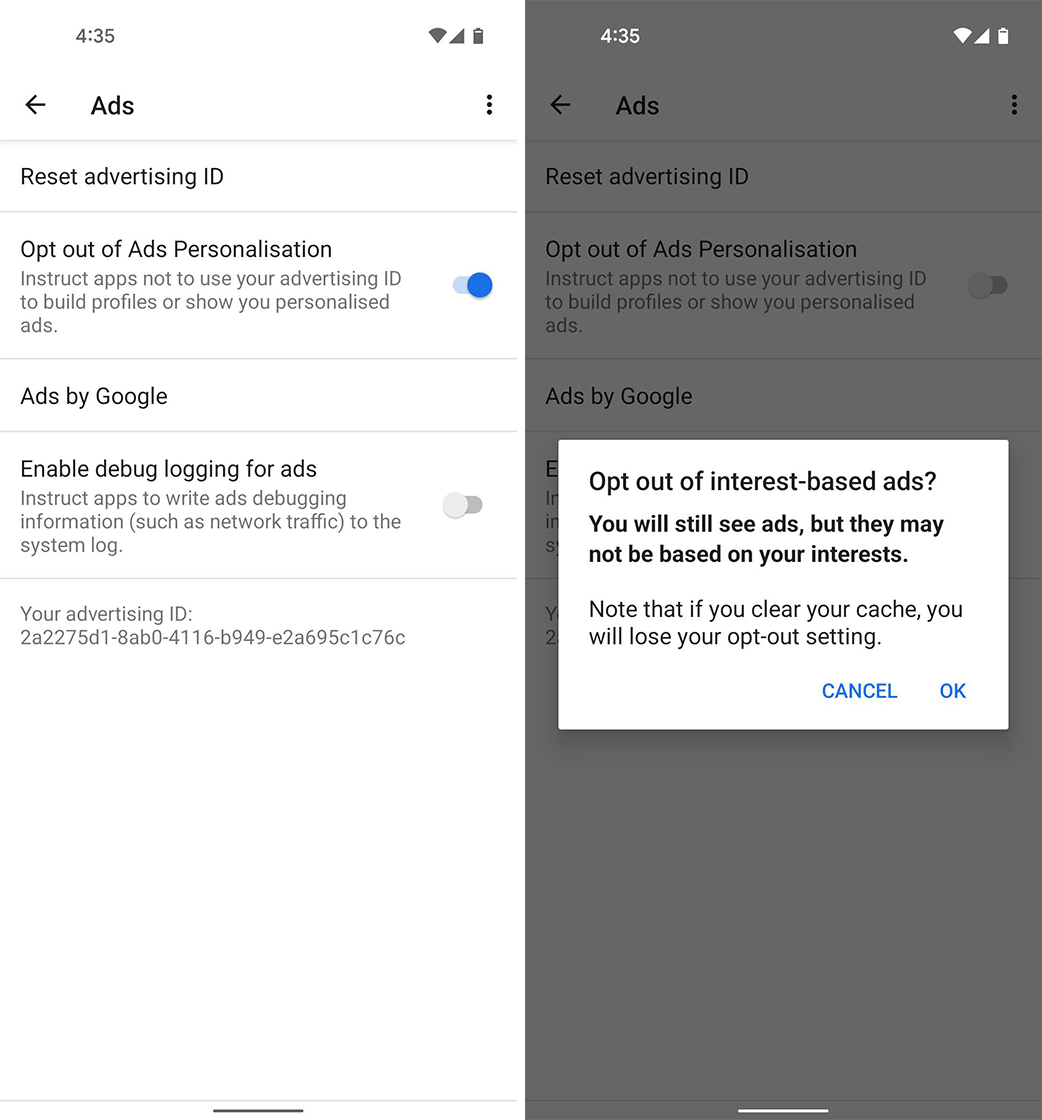Previously the Advertising ID could still be accessed even if users opted out of personalized ads

Google will soon tighten up a privacy setting in Android, following Apple’s lead in a sense. The company has updated a policy related to its ‘Advertising ID’ in Android that will prevent developers and companies from accessing the ID if users opt-out of personalized advertisements.
The Advertising ID is a unique string of characters attached to an Android device. Developers can use the ID to measure app usage, and advertisers can use it to detect traffic or prevent invalid traffic, among other things. Currently, Android users can opt out of personalized ads, but the Advertising ID remains accessible. With the new policy change coming later this year, that will change.
Once the change goes into effect, Android will return a string of zeroes in place of the Advertising ID for users who opt-out of personalized ads. Google says it will roll out the change in phases starting with Android 12 devices in late 2021. The change will expand to “devices that support Google Play in early 2022.” Finally, Google says it will provide an alternative to the Advertising ID that developers can access for “essential use cases” like analytics or fraud prevention.
To opt-out of personalized ads on Android, open Settings> Google> Ads> Opt out of Ads Personalisation.

Google’s change comes as big tech companies face greater scrutiny from governments over privacy and users raise concerns about data collection and use. It’s good to see Google making an adjustment here, but it’d be better if the company rolled out stricter settings like what Apple did with iOS. The company recently rolled out its ‘Tracking Transparency‘ feature, which lets users opt out of cross-app tracking.
While it doesn’t prevent apps from gathering data about you for themselves, it should stop them from sharing that data with others. For example, Instagram can still gather data about iOS users who opt-out and share it with Facebook, since it’s all one company. But Instagram can’t share the data with third-party companies.
Although Apple’s new anti-tracking features are woefully lax and much, much more could be done, it’s still better than Google’s current effort. The search giant should step up its privacy game, but I have my doubts that will happen — as CNBC points out, advertising makes up 80 percent of Google’s revenue. In other words, Google’s incentivized to keep the ad engine going, which will likely keep it from offering any privacy feature that really benefits users.
Still, it’s a start, and that’s good. Hopefully, Google follows this up with more anti-tracking measures, if only because it’s funny how mad Facebook gets about them.
Source: Google Via: CNBC

